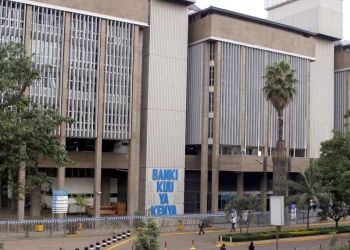Absa Bank Kenya PLC has reported a Profit after Tax of Ksh6.3 billion for the half-year period ended June 30, 2022, registering a 13% growth as compared to a similar period last year. The improved performance was achieved on the back of double-digit revenue growth driven by accelerated lending as the economy continued to recover from the negative impact of the Covid-19 pandemic. As a result, the Bank registered a 20% growth in net interest income, mainly driven by asset growth across all segments.
Customer loans recorded a 19% growth to Kshs.262 billion significantly boosted by trade loans, mortgages, and scheme loans as well as asset financing. In particular, the Bank has enhanced lending to Small and Medium Enterprises (SMEs) to assist them to reposition for growth, recognizing the critical role they play in job creation and economic growth. For the period, customer deposits grew by 7% to Ksh282 billion further supporting balance sheet growth.
While commenting on the financial results, Absa Bank Kenya PLC Managing Director Jeremy Awori said: “We are pleased with this performance, which reflects our customers’ resilience and tenacity. It also validates the relevance of our brand to our customers’ needs and demonstrates the role we continue to play in enabling our customers to participate rightfully in the economic development of our nation.”
Read: Absa Kenya Records 22PC Growth In Profits To Ksh3B
In the period, the Bank continued to invest in new and diverse business lines, which are significantly contributing to its growth. Non-funded income increased by 11% on the back of impressive growth in FX income, Bancassurance and assets management fees.
The period also saw the enhanced investment in the Bank’s innovation and transformation agenda, resulting in the launch of the instant online account opening platform as well as the introduction of Cash Deposit Machines across the country.
Other transformation initiatives included the expansion of the agency banking platform, with over 655 Absa outlets commissioned. Throughout the period, Absa continued to form critical partnerships, enabling it to extend financial and non-financial support to various customer segments. Under its Women in Business Proposition, for example, the Bank has reached over 7,000 female entrepreneurs, providing them with the necessary skills, knowledge, and insights to continue expanding their businesses. In addition, the Bank entered into a risk guarantee agreement with the African Guarantee Fund (AGF) to increase credit availability for local SMEs, including start-ups. Absa also partnered with Visa to launch a domestic and cross-border remittance service.
The Bank’s statutory operating expenses increased by 11% slightly above the inflationary levels, leading to a cost-to-income ratio of 42% which is within a strategy of maintaining a CIR of mid 40% ‘s.
Read: Absa Bank Renews Its Focus On Real Estate
Impairment increased by 52% compared to a similar period last year mainly driven by one-off releases that were booked in the first half of 2021. Non-performing loans ratio is at 7.02% and expected to be better than the industry average demonstrating the prudence of the Bank’s lending decisions.
The Bank’s capital and liquidity ratios remain strong with sufficient headroom above the regulatory requirement. The Bank’s total capital adequacy ratio closed the quarter at 16.5% and liquidity reserve position at 30.3% against the regulatory limits of 14.5% and 20%, respectively.
The Bank is in the final phase of its five-year strategy which is built on three key pillars; Growth, Transformation and Returns. Having achieved its Transformation and Returns objectives ahead of time, the Bank is now focused on delivering accelerated growth to gain market share as seen in the first half of 2022 where the bank recorded faster growth in revenue than observed industry growth.
“We remain cognizant of the challenges and opportunities presented by our operating environment, which is characterised by rising inflation due to high fuel and food prices, geopolitical instabilities which are negatively impacting the local economy, as well as the government transition process that is currently underway,” Mr Awori said.
Email your news TIPS to editor@thesharpdaily.com


















